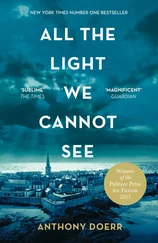Mark took your arm and you turned away. Jimi Hendrix came on the stereo. I walked over to the plate of crudités on Jeff’s parents’ kitchen table, but they tasted like sawdust. When the song ended, you found me again. ‘Mark wants to go, you said. But he’s…’
You looked at Mark, swaying in the doorway. It was obvious what you were asking-you’d just gotten your permit but didn’t feel comfortable driving Mark’s car yet. This was usually a treat for us-Mark would drink too much at a party, and I’d drive you both home, dropping him off first, making sure he got into his house, sometimes even guiding him to his bedroom. Then you and I would drive for hours, rolling slowly across the bridge, along the winding roads to the woods, past the junkyard and lot of abandoned tires. Talking about everything and nothing, simply being together.
But we both knew there would be no after-hours drive that night. Looking back, if only I’d have ushered Mark into the back bedroom so he could lie down for a while. If only I’d have breathed, put things in perspective. I should have taken your hands and said, ‘I’m sorry. This is great.’ Instead, I rolled my eyes and said, ‘Give me the keys.’ On the way to the car, you said loudly to Mark that you didn’t want to run away and get married anymore, that you wanted to do it right here. You wanted to invite all of Cobalt. Mark threw himself into the backseat, groaning, and you got in the front, next to me. When you stared at me, imploring, I should have stared back, but I gunned the engine hard, gritting my teeth as Mark made a gagging sound. What you’d said in the house throbbed inside of me. The words paraded in front of my eyes, obscuring my vision.
I started down the slick, twisting road. One minute, it was peaceful, dark. The next, there he was, paused right in front of us, blinking in the moonlight. I saw his antlers first, then his broad, brown chest. You screamed. My foot fumbled for the brake. I met the animal’s wet, shiny eyes, and then there was that groan of metal. Things were white and chrome and loud and then quiet. Leaves fluttered to the ground. I came to with my head on the steering wheel. I saw your rose-petal hand first, folded neatly in your lap. The glass from the shattered windshield, shimmering on the dashboard and Naugahyde seats, looked like thousands of diamonds. I thought that I could mount a shard in a gold band and give it to you.
‘Hello?’ I cried out. No one answered.
I saw you once after that. The hospital walls were a sterile green. You were in a gown with faded blue flowers all over it, something you never would’ve worn in real life. I was afraid to touch you. Plenty of other people were there to do it for me. They did all kinds of things to you, tubes in places, bags in others, needles in veins, tape covering up half of you, a metal cage around your head. Did they find tiny Ritz cracker crumbs in your mouth when they tried to breathe for you? Did they remark on the strawberry smell of your hair? What did they do with your charm bracelet? Where did they put your diaphanous, paisley-printed blouse, the one that hid so much?
They say I should write letters to everyone, even those that are difficult to write, even to those to whom letters cannot be sent. But my hands feel like they’re being pulled toward the center of the earth, like they have extra gravitational properties. My thoughts plod like dinosaurs. I’ve had so much done to me in the past few years, so much prodding, so much electricity jolted into my head; and so much of it, I fear, hasn’t really helped. But through it all, I have never forgotten you, nor have I forgotten the secret you and I share forever. I hope you know that I am desperate to always remember. I hope you know I’ll cling to everything about you as hard as I can. Although, I guess you don’t know anything, now. I guess you don’t.
She’d been away for just a few days when a biology substitute told my class the most important and wonderful piece of information I’d ever heard.
And then he was pulled out of the classroom forever.
Before this, Mr Rice had been invisible. The blazers he wore to Peninsula Upper School-one of the finest schools in the Brooklyn Heights-to-Park Slope radius, to quote the promotional materials-were never wrinkled, and he always combed his thin, wheat-colored hair into wet-looking lines. There was nothing extracurricular in any of his previous lessons, and with his droning monotone, he made the processes of cell division and photosynthesis and the intricate innards of a paramecium seem far less fascinating than they truly were. But on this particular day, Mr Rice drew a double helix on the board, tapped it with his piece of chalk and said, ‘Everyone, this is what your whole life is all about. It’s all you need to know about anything.’
The class fell silent. ‘DNA makes up everything inside of you,’ he boomed. ‘It determines what you look like and how you think, if you’re going to get sick and whether you’re smart or stupid. All you need to know about yourself is right here in this little molecule. Everything about your future, everything about your past. Nothing else matters, and you can’t change it. It’s passed down, directly, from your parents. You can’t escape your parents and your parents can’t escape you, as hard as either of you might try. You’re tethered to them for life.’
Everyone murmured. Jennifer Lake raised her hand, then put it back down quickly. ‘Even the DNA that may not code for anything,’ Mr Rice went on, his voice swooping up and down, the way a hawk climbs and dives. ‘The stuff that’s called junk DNA. It does code for something-something huge . It codes for the secrets, stuff we never admit to anyone. Once we crack its code, we’ll have the answers to everything, but right now, I think the only beings that understand junk DNA’s secrets are the aliens.’
Mr Rice turned and drew a dish-shaped spaceship on the board. An eggplant-headed alien peeked out the top, and Mr Rice etched a dotted line beaming right to the helix of DNA. The sweat on his forehead reminded me of the beads of water that gathered on the outside of a plastic bottle on a hot day. A couple of boys at the back coughed insults into their fists. But Mr Rice’s words echoed in my mind. This is what your whole life is about. You can’t escape your parents and your parents can’t escape you.
Before this, our school’s principal had missed every other instance of unorthodox teaching, so it was something of a surprise when his face appeared outside the classroom door. Then there was a knock. ‘Everything okay, Mr Rice?’ He stuck his head in. His eyes glided to the slapdash spaceship on the chalkboard.
I stared at the spaceship, too. There were so many things I worried about. I’d always been a worrier-my father said worrying was in our blood. Just one week before, one of my most pressing worries had been that I would drop my set of keys to the apartment onto the subway tracks. I was so obsessed with the precarious danger of it, I flirted with the idea of pitching the keys down there willingly, just to know what would happen. But if I did, I would have to sit on the stoop in front of our apartment building, keyless, until my mother returned home from work. I didn’t want to imagine what she would say, the pinched, disappointed shape her face would take.
I used to worry about the lone gray hairs I often saw sprouting from my mother’s head, terrified that she was showing signs of advanced and debilitating age. When she started to shut herself in the bathroom for hours at a time, talking quietly on the phone, I worried that she was hiding a horrible sickness from the rest of us. I pictured a devastating disease ripping her apart, her skin peeling off in curls, her heart blackening. When we received a catalogue from the Vitamin Shoppe in the mail, I put it by her plate at breakfast, convinced its glossy pages contained a miracle pill. But she pushed the catalogue aside. My father absently flipped through it instead, commenting on the high price of spirulina tablets and chromium picolinate diet pills. In all my what-if scenarios, I never envisioned my father physically ill. The dark hours he spent under the covers were due to something different, not sickness.
Читать дальше











